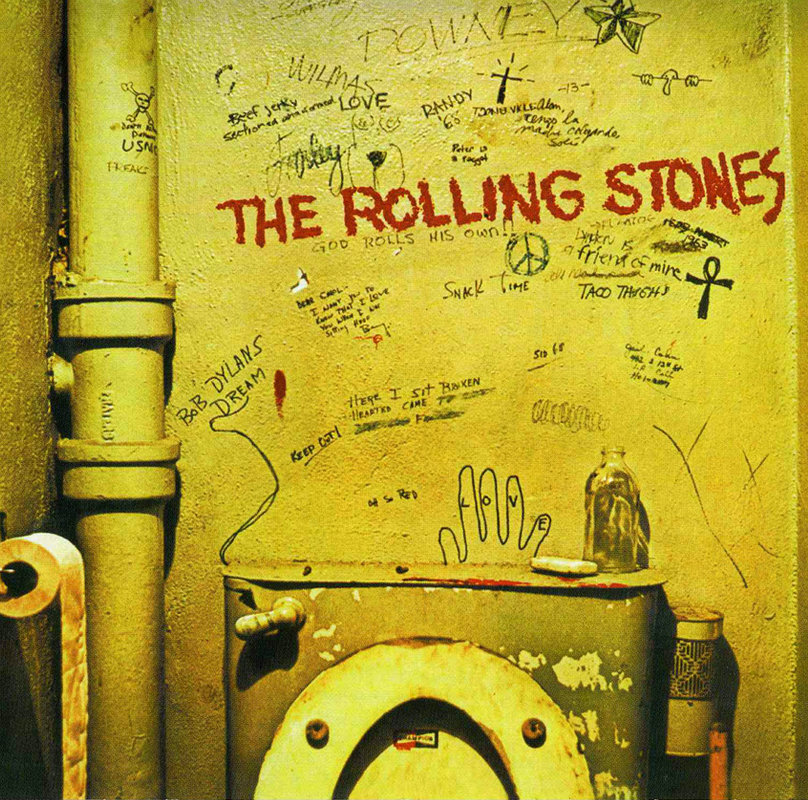
Beggars Banquet (1968)

1.Sympathy for the Devil
2.A Love in Vain
3.Dear Doctor
4.Parchute Woman
5.Jigsaw Puzzle
6.Street Fighting Man
7.Prodigal Son
8.Stray Cat Blues
9.Factory Girl
10.Salt of the Earth
After the strange detour that was Their Satanic Majesties Request, The Rolling Stones slammed the brakes, made a hard U-turn, and delivered what many still regard as their first true masterpiece. Beggars Banquet wasn’t just a return to form—it was the unveiling of what the band would ultimately become. This is the leanest, rawest, and most stripped-down album in the band’s catalog, but it’s so earnest and alive that even a single listen can feel like a revelation.
There’s not a whole lot going on instrumentally—acoustic guitars dominate, with some occasional piano (courtesy of the always-reliable Nicky Hopkins). But that’s the genius. What they leave out, they make up for with salt and conviction. This is the Stones doubling down on their outlaw image, leaning into it hard. The album kicks off with one of the most infamous songs in rock history, Sympathy for the Devil. Driven by tribal percussion and Jagger’s sneering vocal, it’s a dark, hypnotic tour through history’s bloodshed, name-dropping the Crucifixion, the Russian Revolution, and the assassination of the Kennedys like they were items on a grocery list.
And the fire doesn’t go out. Street Fighting Man comes in with its distorted acoustic edge and punches right through the social fabric of the late sixties. Whether or not it was meant to incite riots, it sure sounded like it could. Vietnam was raging, cities were burning, and this song felt like it was cut from the chaos itself.
That’s not to say it’s all revolution and hedonism. Dear Doctor is an oddball hoot—a twangy, backwoods tale of shotgun weddings and sudden disappearances. Somehow it’s both crude and charming. Factory Girl keeps things light too, offering a minimalist folk shuffle about a working-class love interest “with curlers in her hair.” Elsewhere, they dig into the Delta blues with their cover of Prodigal Son, tip their hats to Dylan on Jigsaw Puzzle, and close with the soulful Salt of the Earth—a slow-building anthem for the working man that brings in a gospel choir for good measure.
Behind the scenes, though, things were messy. Brian Jones was barely hanging on. His contributions were becoming sporadic at best, thanks to a near-decade of indulgence catching up with him. Drug charges were piling up, and the band seemed to be one incident away from disaster at any given moment. The notorious Beggars Banquet toilet cover was even deemed too offensive for release at the time.
Still, through the drama, the band somehow managed to sound sharper than ever. Beggars Banquet may not be their absolute best—though some would argue otherwise—but it’s certainly the record where The Rolling Stones became The Rolling Stones. Most fans rank it easily in the top five. For good reason.
Go back to the main page
Go To Next Review